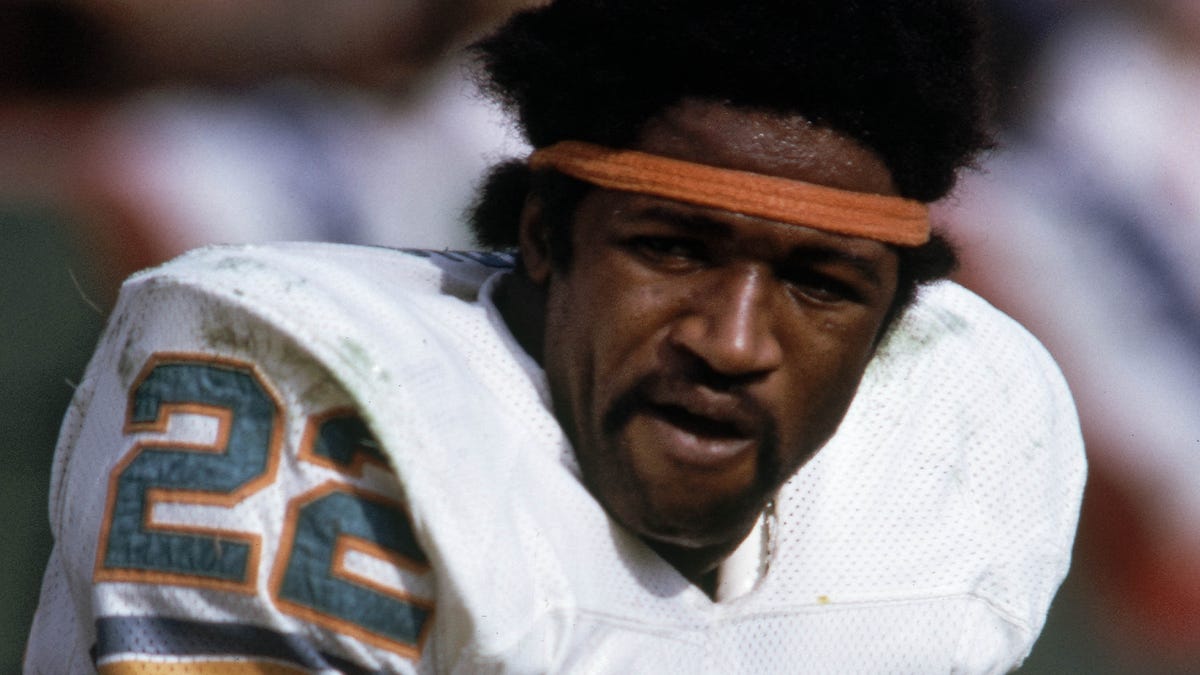You might not be familiar with Mercury Morris’s life, but it’s worth knowing.
Let’s start with a bit of history. This is a story about a good man, a unique man, and in many respects, a remarkable one. Although you may not be familiar with Mercury Morris’s life, it’s a story worth your attention.
The backdrop is set in the year before the Miami Dolphins achieved their perfect season, following a disappointing loss to the Dallas Cowboys in Super Bowl 6. In that game, won by the Cowboys 24-3, Morris hardly saw any action and expressed his frustration afterward. “The only time I got off the bench,” Morris remarked, “was for kickoffs and the national anthem.”
Coach Don Shula was infuriated by Morris’s public comments, but the reality was that Morris had a point.
“Our entire strategy focused on stopping the running game and Paul Warfield,” said Cornell Green, a Dallas defensive back at the time. “If we were to lose, it would be to Howard Twilley and Marv Fleming—not to Warfield, Jim Kiick, or Larry Csonka. We were prepared for Mercury, but he didn’t play that entire game, which was a relief. (Because) Chuck Howley could manage Kiick. If Mercury had been in the game, that would have posed a real challenge. I don’t understand why Shula didn’t play him more. I wish I knew what upset Shula about him.”
Following that awkward moment after the Super Bowl, two significant things transpired.
The next season, the Dolphins achieved an unprecedented record of 17-0. No other accomplishment in American team sports history has had such a lasting impact.
Additionally, Shula not only reconciled with Morris but later recognized him as being right. Shula and Morris developed a close friendship, and like many members of that team, they remained friends for life. Even when Morris encountered legal issues later, he became something of an iconic figure; over the decades, he would defend the legacy of that team, particularly in the face of challenges from teams like the New England Patriots.
Morris’s affection for the Dolphins was matched by the team’s respect and admiration for him. They valued his tenacity, his kindness, and his humanity.
When I wrote my book about the undefeated team, Csonka spoke about Morris so reverently that it moved me to tears. Csonka recently posted on X: “It’s a very sad day for me and our Dolphin family.”
You might not be aware of the life of Mercury Morris, but it’s certainly worth learning about.
Morris became the guardian of the Dolphins’ unbeaten legacy. Whenever another team approached the Dolphins’ record, Morris stepped up to defend it. He took the opportunity to educate others about the players from that era and the game’s history, rather than mock other teams or hope for their defeat.
What irked Morris and the Dolphins was a perceived lack of respect for their era. He aimed to enlighten people on how formidable the NFL was in the 1970s.
With his characteristic humor, Morris often added, “For the record, we DO NOT toast every time an unbeaten team loses,” he penned on social media in 2015 when the Carolina Panthers started 14-0. “There’s no champagne in my glass—only Canada Dry Ginger ale! Ha!”
When asked about the Dolphins’ rough 0-8 start in the 2007 season, Morris humorously responded, “The Dolphins aren’t embarrassing me because our record stands at the top. This is not my team. People say, ‘Your team is struggling.’ I say, ‘My team is getting senior discounts!'”
There was also a serious aspect to Morris’s life. He was convicted on drug trafficking charges in 1982 and sentenced to 20 years. Morris claimed he used cocaine to manage pain from his injuries but never sold drugs. Eventually, the Florida Supreme Court overturned his conviction.
“Was I bitter? Not really,” Morris recounted in his 1998 book “Against The Grain.” “I wouldn’t advise anyone to spend three days in jail, let alone three years. But I must admit, I needed to go through that experience to cultivate the character I possessed when I regained my freedom.”
Morris transformed his life, becoming an activist who encouraged others to avoid drugs while staunchly defending the legacy of his undefeated team.
So again, you might not be familiar with the life of Mercury Morris, but it’s certainly a story worth knowing.

